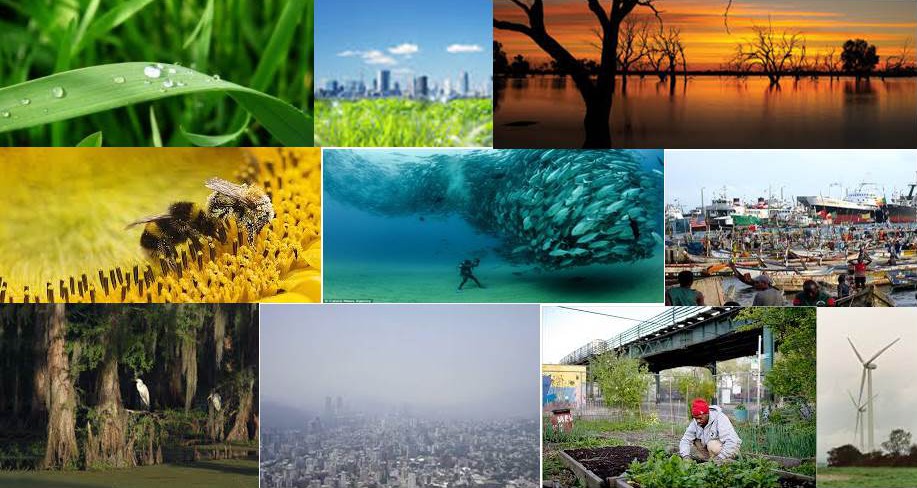Reading for Wed. Nov. 30 Read the attached short summary of the terms of the Intergovernmental Panel on Climate Change agreement adopted in December 2015 and be prepared to discuss the following questions on Wed.
nations-approve-landmark-climate-accord-in-paris
paris-2015-getting-a-global-agreement-on-climate-change
(read pages 4 – 9)
- What are the main highlights/accomplishments of the agreement, which was reached in December 2015 and took effect in November 2016?
- What is the meaning of climate justice? What components of change should be included in meaningful change?
Reading for Wed. Nov. 16: Please read the two attached articles as well as the class group assignment, all of which are posted here and bring copies of these to class on Wed. You will be using these in the semester group project which will be done in class this Wed. Nov. 16.
5-ideas-for-protecting-new-york-from-the-next-sandy
ny-launches-19-5-b-climate-resiliency-plan
group-project_building-for-the-next-big-storm_11-18-16
Reading and assignment for Wed. November 9:
reading-assignment-for-environmental-economics-2016
Reading for Wed. October 19:
Read the two attached articles before the next class meeting on Oct. 19. There will be a short class assignment related to the readings. Discussion questions to prepare for this will follow in a couple of days.
1.William Emmons
dont-expect-consumer_spending William Emmons presents five major arguments as to why the U.S. economy can no longer rely on consumers to drive consumption and economic growth. He points out that American consumer spending was the major source of the prosperous post-war era from 1945 – 1980. A) Why does he now believe that American consumers can no longer play this role? B) B) What changes does he believe are needed in the U.S. economy to make up for the slack in consumer spending and to generate growth? Please be clear and specific in your answers.
http://www.wavespartnership.org/sites/waves/files/images/Moving_Beyond_GDP.pdf
- According to the WAVES report, what does GDP fail to measure? What is natural capital and what are the arguments that the article makes for placing a value on natural capital (natural resources)? How specifically does the report believe natural capital should be measured?
- How will accounting for the value of natural capital provide a more accurate measure of the value of what a nation produces? Provide an example of what one country is doing to account for the value of its natural resources.
Reading for Wed. September 21:
thompson-and-press_csa_-practicing-plenitude-2014
mcclintock_why-farm-the-city (pages 191-201)
Reading for Wed. September 14 Read the assigned pages of the following article and bring the pages to class on Wed. Review the discussion questions below.
atkinson-etal-2010-econ-climate-change_theories1
Read pages 1-12 of the article. The authors explain various economic assumptions that are at the center of different climate change policy proposals. They contrast these theories – Neoclassical economics, Keynesian economics, and Innovation Economics.
Discussion in class on the following questions:
- What do neoclassical economists believe are the central issues to resolve in addressing the challenges of climate change? What assumptions does the theory make?
- Do you think the assumptions made about human economic behavior and about how to address environmental problems are workable in the real world economy?
- What do neo-Keynesian economists view as most important in addressing the challenges of climate change? Explain how the neo-Keynesian perspective differs from the neoclassical perspective.
- What are the principal problems that Atkinson and Hackler have with the neoclassical and neo-Keynesian policy proposals for addressing climate change? What arguments do the authors cite as to why neither the neoclassical nor the neo-Keynesian views offer an suitable policy framework for addressing the climate challenges of the 21st century?
- The authors discuss what they call “Innovation Economics.” What is ‘Innovation economics’ according to the authors?
II. Read the short article (one pg) here by the IETA.
Why Emissions Trading is More Effective Than a Carbon Tax_IETA
- What policy does the International Emissions Trading Association advocate for addressing climate change? Why does the IETA believe this policy is workable?What is “cap and trade”?
Reading for Wed. Sept. 7: Read the Executive Summary – pages 3 through 7 only. The link to the reading is provided below.
US Economic Impacts of Climate Change and the Costs of Inaction
We will discuss the following questions in class on Wed. Come prepared for the discussion.
1. What sectors of the U.S. economy are projected to be affected by climate change in the near future?
2. What have been the economic costs of some recent extreme weather events in recent years? 3. What are some of the reasons that different regions of the country are expected to experience different impacts or effects of different severity? What are some examples of industries that may be impacted?
4. Why are climate change events expected to negatively affect public sector (government) budgets? Examples?
5. What are some of the expected secondary affects? Why are these secondary affects expected to occur?



